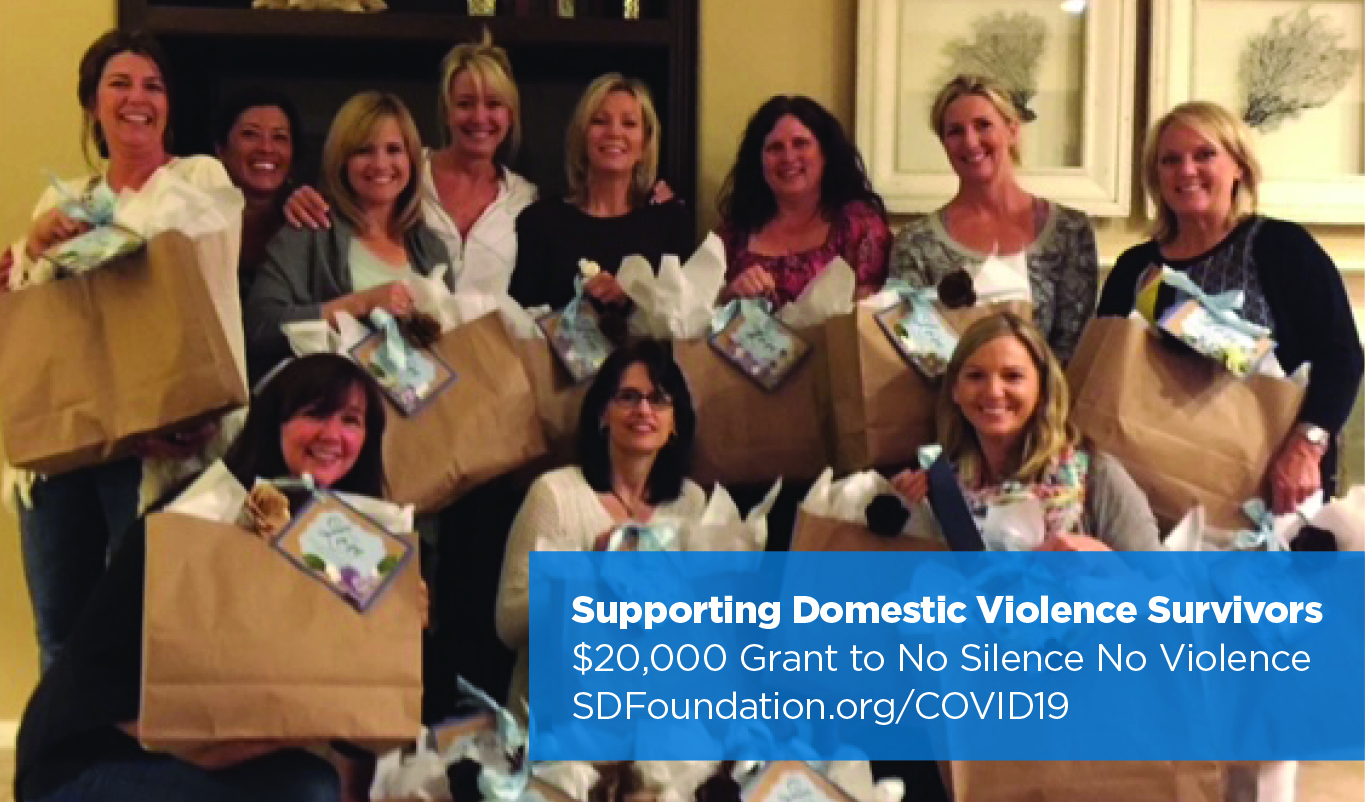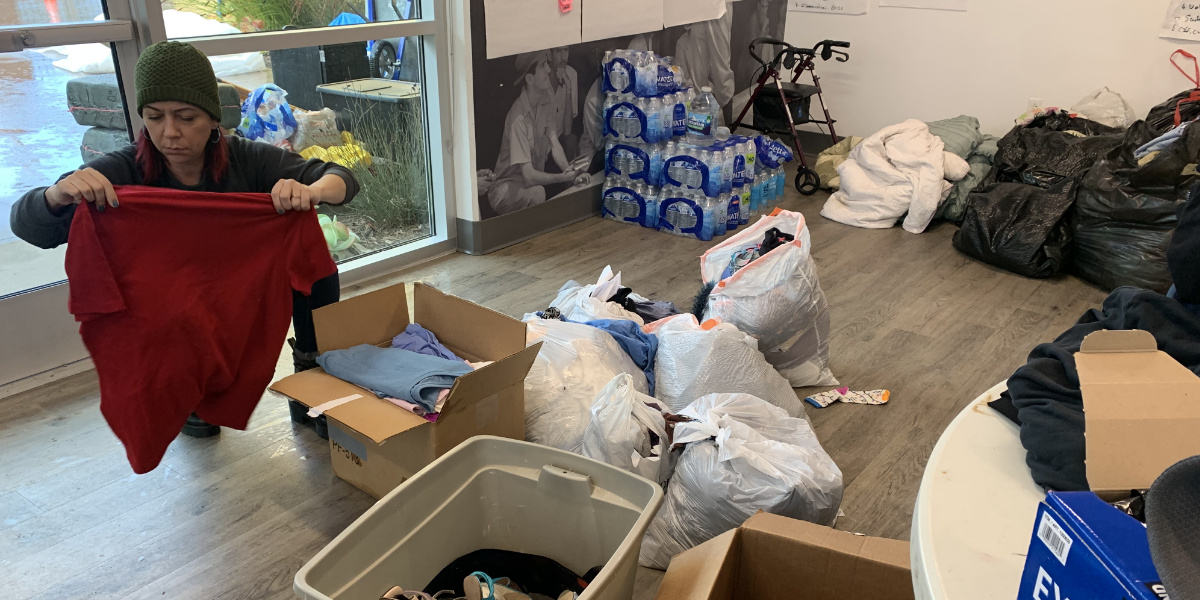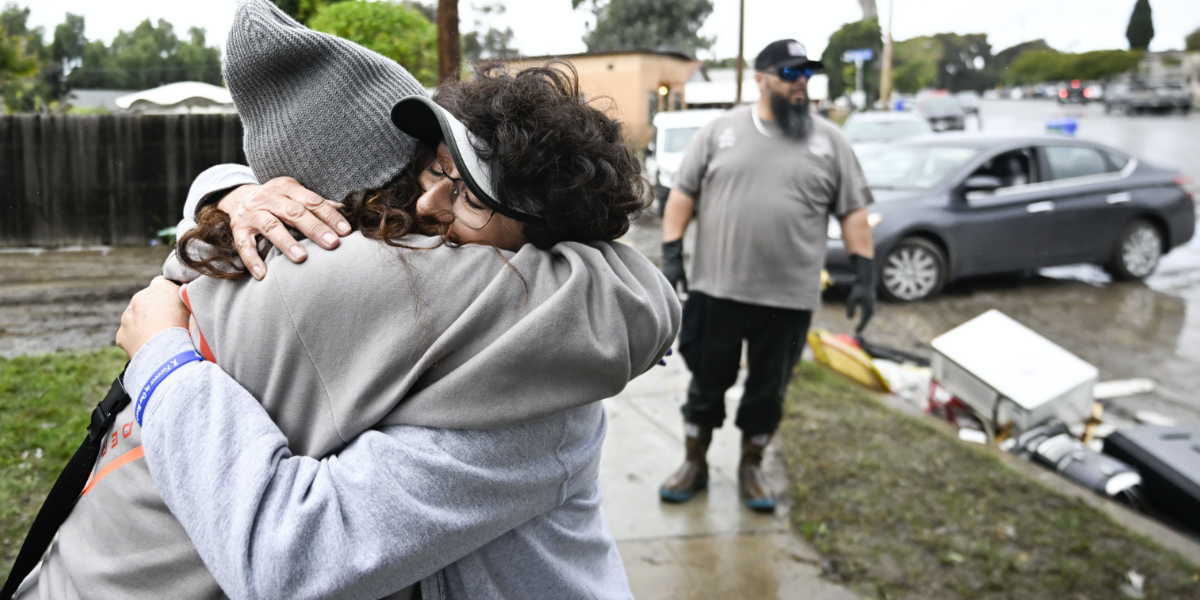For so many amid the pandemic, “safe at home” was not – and is not – reality.
“You’re trapped in a pressure cooker at home with your harm-doer,” shared Laura Mansho, board member at No Silence No Violence (NSNV), describing what the past year has been like for individuals experiencing domestic violence.
NSNV, a 7-year-old local nonprofit, provides education, training, resources and community development to eliminate stigma surrounding relationship abuse and sexual assault, while creating awareness, shifting perspectives, and facilitating change around the way we talk about domestic violence.
Mansho is no stranger to the various ways domestic violence can impact a person’s life. She first discovered NSNV when she stumbled across one of its support groups, hosted throughout the region and continued virtually.
“It didn’t even occur to me that I was in an abusive relationship,” Mansho shared, having been in an abusive marriage in another state for close to a decade. In a crisis, she had to flee with her infant daughter and stay in a shelter before moving back home to California.
“People think that once you flee and leave, that’s the big crisis point – and it is – but after that there’s a lot of stuff to go through,” she emphasized, citing the overall healing process, navigating trauma and the legal battles that arise from these circumstances.
Mansho had to learn what an abusive relationship looks like and understand how she had ended up there. NSNV support groups were critical in her healing.
“It provided me with the space just to be heard and to share my story with people who understood,” she shared.
Moving Mountains to Move Forward
Support from the San Diego COVID-19 Community Response Fund at The San Diego Foundation helped NSNV continue addressing the gaps that survivors often fall into throughout their healing. The $20,000 grant helped NSNV provide trauma therapy for survivors who have lost their health insurance coverage, and covered the legal fees required to obtain restraining orders and manage divorces and custody battles.
“Without being in continuous trauma therapy, these wounds re-open,” shared Mansho. “Any roadblock that’s going to stop you from healing feels like a mountain.”
She also highlighted just how quickly legal fees can pile up for survivors, something that the public doesn’t always consider when thinking about how abuse can be prolonged. Harm-doers will regularly use legal abuse to drag out custody battles, restraining order hearings and more, Mansho explained.
The ability for survivors to file for restraining orders virtually and have hearings over Zoom amid the pandemic has been a gamechanger, Mansho shared, adding that not having to face their harm-doers in court has been a significant shift in healing.
Individuals in domestic violence situations are often dependent on their abuser for help with utility bills, housing, their phones, cars, and as is the case for most people that NSNV serves, their children. The risk of not being able to take care of their children and other responsibilities without financial support from the abuser makes it even more difficult to leave.
The Community Response Fund grant also supported NSNV’s ability to transition families out of shelters into their own rentals and provide them with necessities like a safe mobile phone, children’s clothing, gas and other needs.
Mansho recalls one survivor, living in a shelter with a toddler, who was suicidal because she felt like no one cared or was going to help her.
“It felt like a dream being able to move into a place that was our own, that was safe,” the client shared after NSNV was able to help the family with their own space. “We don’t have much in the way of material things, but now we have a home full of love and not hate, and one day I hope to return the favor by helping someone in need.”
Planting Seeds
“The funds that you guys have given us are literally changing lives, are literally helping people heal the trauma that they have so they can move forward,” Mansho said of the support from the COVID-19 Community Response Fund.
In addition to the resources NSNV has continued to provide to those in domestic violence situations and survivors, the nonprofit hopes to continue and expand the education portion of their work, including opportunities for virtual community outreach and education. Their goal is to reach people before the cycle of abuse begins through preventative education.
When asked what the community can do to support its work, in addition to continued donations and volunteer support for NSNV, Mansho emphasized the importance of checking in on friends and family that you haven’t heard from in a while. During quarantine, many individuals in abusive situations lost the outlets to be able to break, even temporarily, from their spouse or partner.
“If you can plant a seed and let someone know ‘I’m there for you no matter what. Whether you choose to leave or stay, I love you and I’m here for you’, you never know when at some point in their healing process, they’ll be ready to leave and they’ll remember that you said that.”




